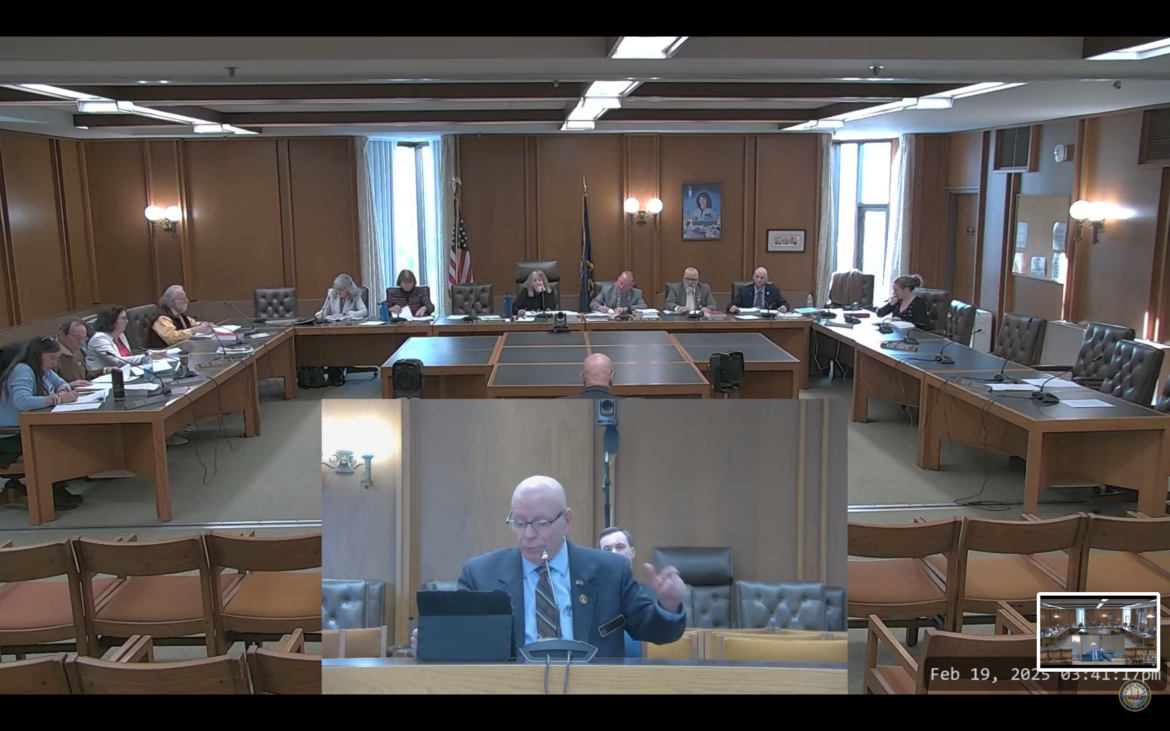By GARRY RAYNO, InDepthNH.org
CONCORD — Although the state’s divisive concepts law cannot be enforced due to a judge’s order, one state Representative wants to remove the law from the state statutes.
Rep. Peter Petrigno, D-Milford, acknowledges his attempts to repeal the law in the past have been unsuccessful, but views it “as a matter of principle to try it again.”
Petrigno, tried to convince the House Education Policy and Administration Committee Wednesday that House Bill 50 to repeal the law should pass, although the former social studies teacher was outnumbered by opponents to his proposal at the public hearing.
“Social studies is not about simply memorizing facts,” he told the committee, “as a teacher, you have to lead students to develop critical thinking skills so they can be thoughtful and engaging citizens.”
He told of an assignment he gave students to do research to develop the knowledge to give a personal prediction of America’s future in contrast with the Roman Empire.
Students had to do critical analysis and develop reasoned opinions, Petrigno said. “The current law allows the teaching of history but makes it difficult to examine the past in context with today’s issues.”
He noted that in all walks of life and professions you find people who do not conduct themselves in an appropriate manner, but you don’t write laws for the few, you write laws for all.
“Teaching is about opening minds, indoctrination is about closing minds,” he said.
Many teachers feel they are incapable of teaching under the law, he said. When students hear words like nazism, socialism, white supremacy thrown about willy nilly, they have questions.
“In the classroom you study the past not for trivial pursuit, but to understand what goes on today and so you can make this place better in the future,” he said.
But others said the law should stay in place, as no one group should be shamed or made to feel inferior to another.
Former Rep. Arlene Quaratiello, R-Atkinson, said she has taught seventh graders about the life of abolitionist Frederick Douglass for years and does not understand why anyone would think you couldn’t.
“You can’t single out a group to feel shame that something in the remote past is in some way their fault,” she said.
She said she has heard anecdotes that have happened, the kids come home and say they were made to feel bad or shame.
Cornerstone Action Associate Director Ian Huyett opposed the bill saying he finds it’s easy to distinguish between teaching about racism and saying a person is inherently racist based on race or inferior or superior to another based on race and teachers should as well.
In federal district court Judge Paul Barbadoro’s injunction, Huyett said, doesn’t say the problem is the law prohibits anything including affirmative action.
His ruling says the problem with the law is it may deter teaching about the benefits of affirmative action because it is important as it remedies past discrimination and promotes diversity, Huyett argued.
He said those opposing the law go into court and say, “We want to teach affirmative action is beneficial A.K.A. that white students should face discrimination.”
Teachers can tell what it is prohibiting, Huyett said.
The bill was backed by the NH Council of Developmental Disabilities as the group’s director of policy and planning read a letter from executive director Isadora Rodriguez-Legendre saying the repeal would benefit those with developmental disabilities who face discrimination and humiliation in education and the workplace.
“It is important to understand what life was like for people before protections were passed,” the executive director said in her letter.
The National Alliance on Mental Illness and New Futures both supported the repeal as well.
The House electronic system indicated that 511 individuals supported repealing the law, and 46 opposed the bill.
The committee did not make an immediate recommendation on the bill.
Garry Rayno may be reached at garry.rayno@yahoo.com.





